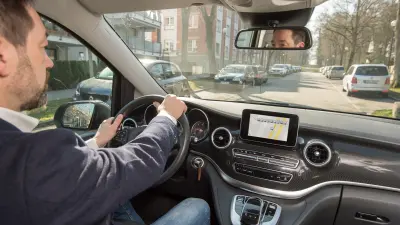Outside the box
Parking spaces are often in short supply. Bosch is turning cars into smart travel companions that know exactly where their place is.
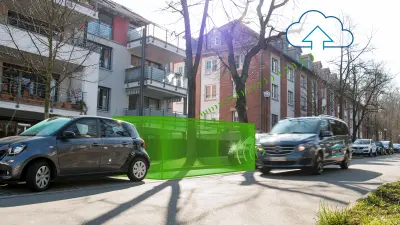
The hunt for free parking spaces takes time, costs money, and frays nerves. This is not to mention the fact that driving around creates more emissions. Bosch has a smart solution that lets drivers know where they can find an available parking space and whether it will remain free.
One for all, and all for one
It sounds as straightforward as it is: drivers receive information in real time about available parking spaces along the curb or in a parking garage. How does it work? Using ultrasonic sensors, every car records spaces that are available as it makes its way through the city, even if the drivers themselves are not looking for a parking space. The data is sent to the cloud anonymized and displayed to those drivers looking to park their cars soon.
Over time, increasingly more precise information is compiled from the large number of vehicles sending data on available parking spaces to the cloud. This makes it possible to conveniently guide drivers looking for somewhere to park towards available spaces.
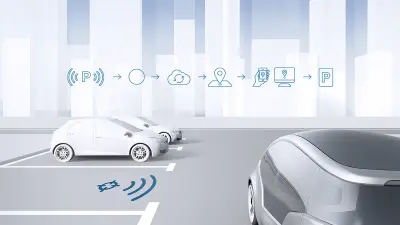
Thinking outside the box with artificial intelligence
Artificial intelligence makes it possible to identify obstacles: Is the area in question a parking space or a driveway? Available parking spaces are clearly identified as such by a car that “thinks” along with the driver! It even thinks outside its immediate confines and can take the traffic volume of nearby streets into account to prevent several drivers from being guided to one available parking space at the same time. The car’s artificial intelligence also factors in such things as seasonality and trends in order to predict whether the parking spot will still be free when the driver arrives. Are parking spaces in this area always occupied only towards late afternoon or during the day? Artificial intelligence already takes all of these matters into consideration whenever available parking spaces are reported to the cloud.
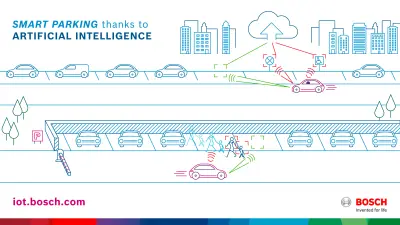
The chauffeur does the parking
The Bosch Center for Artificial Intelligence, which has locations in Bengaluru (India), Palo Alto (United States), and Renningen (Germany), is not only focused on equipping today’s products with artificial intelligence. It is also looking ahead to the future in particular. The team there continues to develop the technology of tomorrow in such a way that it can lend us support in everyday life as soon as possible. Intelligent sensors are enabling completely new applications. For example, one research focus is making it possible for cars not only to recognize objects, but even to factor in future events as well. This ability would help with the parking process: Where are obstacles located, and where are people walking? Where will the pedestrian be in the next few minutes? For identification purposes, Bosch is already using algorithms that go to great lengths to evaluate cameras’ images pixel by pixel. The car of the future will then be able to anticipate human behavior by means of probabilistic graphical models, meaning the “chauffeur” responsible for parking will be included with the car!
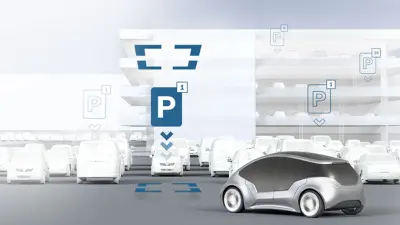
Summary
Community-based Parking means that all cars in traffic collect data on free parking lots and pass it on to the cloud. Artificial Intelligence prevents several drivers from being guided to one available parking space at the same time. For drivers, the result is clear: You save time and miles!
